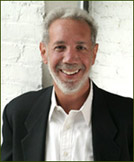
Services Offered
Individual Psychotherapy
Couples Therapy
Supervision
Psychological Diagnostic Testing

BIO
A famous psychologist once said, "Therapists should learn their theory as completely as possible, yet when they are with their patients, they should proceed to forget it."
What he meant was that in clinical work one should be with the patient rather than with one's preconceived notions about the patient. This is how I approach psychotherapy.
 1977 was a pivotal year for me. I started a full time clinical psychology program at St. John's University, was the youngest person ever admitted to the National Psychological Association for Psychoanalysis and began my personal analysis on a 3x/week basis. Parenthetically, I also was driving a taxicab 3 nights/week in New York City and doing volunteer work 3 days/week at Creedmoor Psychiatric Center.
1977 was a pivotal year for me. I started a full time clinical psychology program at St. John's University, was the youngest person ever admitted to the National Psychological Association for Psychoanalysis and began my personal analysis on a 3x/week basis. Parenthetically, I also was driving a taxicab 3 nights/week in New York City and doing volunteer work 3 days/week at Creedmoor Psychiatric Center.
Five years later I had my doctorate, my license to practice psychology in New York State, was working in community mental health and seeing patients in private practice.
For 28 years I divided my professional time between seeing patients in community mental health clinics, teaching and supervising clinical psychology interns, and the independent practice of psychology and psychoanalysis. I received many awards, presented papers on a variety of topics and became a published author.
I consider myself to be, first and foremost, a clinician. A clinician does what needs to be done: no more, no less. And that's the trick— to assess precisely where that point lies. My best supervisors have been my patients. They tell me when I'm doing it right and when I'm doing it wrong. The task here is to be able to listen to their signals and to adjust accordingly. I use my personality, humor and even use self-disclosure judiciously at times to facilitate treatment.
I believe that behavioral and internal change takes place in the context of a therapeutic relationship that the patient experiences as safe. What's also important here is that it takes place in an environment that promotes autonomy and growth. The apparent paradox here is that the relationship starts as one of dependence, which is, of course, often the patient's greatest fear. But it is a dependence that is in the service of the patient's freedom and independence. This is part of what makes the psychotherapeutic relationship a special one. As someone once said to me, "This is the only relationship where the sole purpose of it is for it to end." Of course, she had significant abandonment issues, but in a way, she was quite right.
I specialize in working with people who have depression, anxiety, relationship problems and personality disorders, i.e., people who approach life's everyday challenges in the same ways persistently despite disappointing results. But, over the course of 28 years there is really nothing that I haven't seen or treated.
In my free time I love to travel to pretty places with a nice beach, go out for dinner, go to the movies, read a good book, play tennis, and I am also an accomplished chess player. But whatever I do, psychology for me is not just an occupation, it is a way of life.
Jerrold Surasky, Ph.D.


 1977 was a pivotal year for me. I started a full time clinical psychology program at St. John's University, was the youngest person ever admitted to the National Psychological Association for Psychoanalysis and began my personal analysis on a 3x/week basis. Parenthetically, I also was driving a taxicab 3 nights/week in New York City and doing volunteer work 3 days/week at Creedmoor Psychiatric Center.
1977 was a pivotal year for me. I started a full time clinical psychology program at St. John's University, was the youngest person ever admitted to the National Psychological Association for Psychoanalysis and began my personal analysis on a 3x/week basis. Parenthetically, I also was driving a taxicab 3 nights/week in New York City and doing volunteer work 3 days/week at Creedmoor Psychiatric Center.